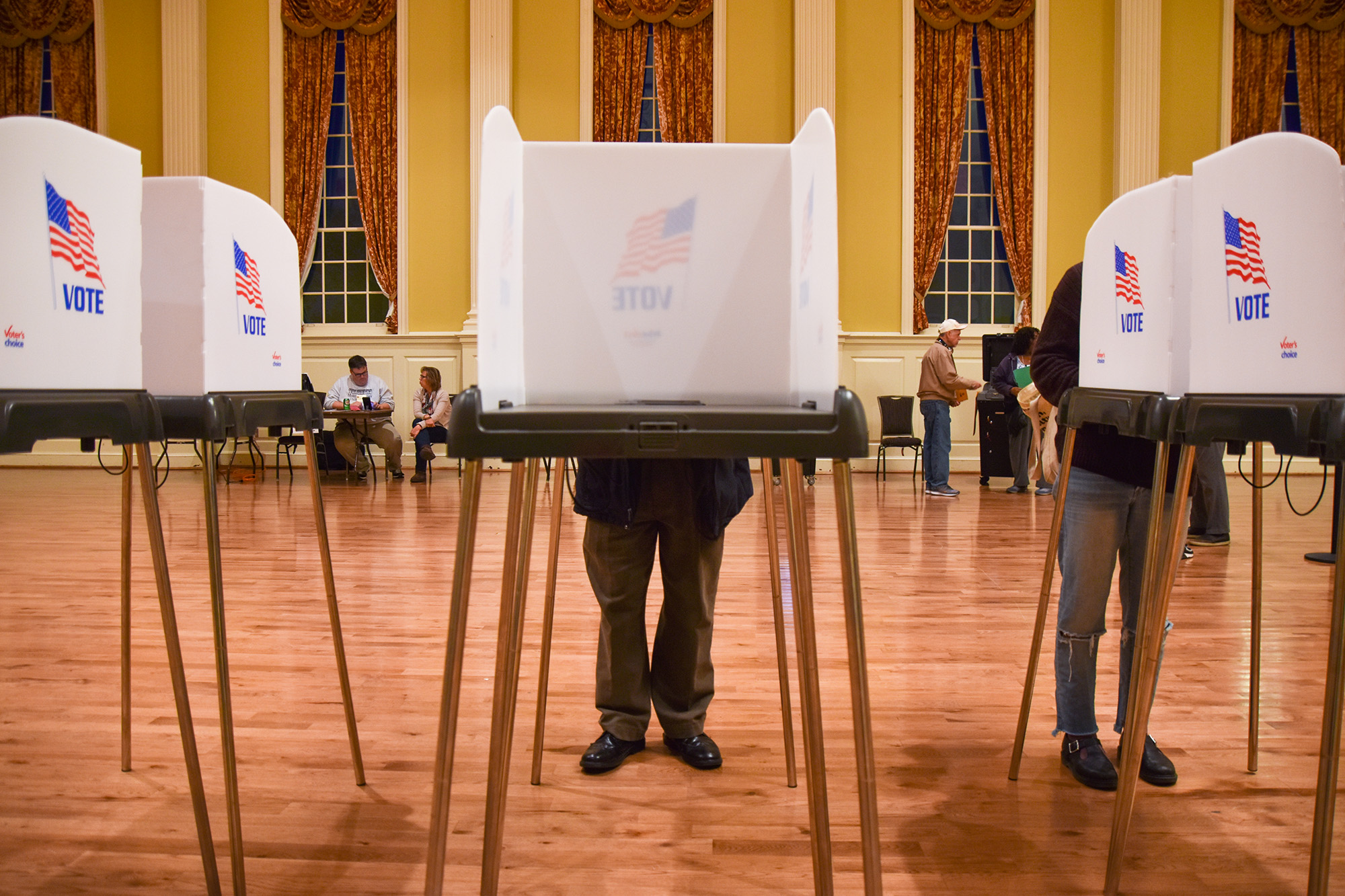Views expressed in opinion columns are the author’s own.
With Election Day fast approaching, many voters are scrambling to fill out mail-in ballots, find polling places and maneuver the changing bureaucratic rules about how ballots will be accessed and counted in a pandemic. And many University of Maryland students are weighing the options for ensuring their vote is counted, amid uncertainties about how this election will play out and frantic “get out the vote” messaging.
Despite widespread concerns about whether mail-in ballots will be counted — especially if ballots are delayed — the university has decided not to cancel classes on Election Day to better allow members of the university community to get to the polls or drop off their ballots. While university President Darryll Pines and Provost Mary Ann Rankin did send an email to faculty requesting that professors be flexible with attendance, due dates and scheduling major assignments on Nov. 3, this decision puts students who are concerned about their ballots being counted in a difficult position. It seems only fair that the University of Maryland — an institution that prides itself on high student participation in elections — stay consistent in their messaging by canceling classes on Election Day.
In a campuswide email on Sept. 28, Pines emphasized the importance of voting and even provided resources for applying to volunteer as an election worker. He also included links to university initiatives to increase voter education, such as TerpsVote. While this is certainly a genuine gesture to increase electoral participation among students, encouraging students to volunteer at the polls on Election Day seems a bit silly if the administration won’t cancel classes, regardless of whether professors are encouraged to be understanding. In fact, it seems rather performative, much like many other “get out the vote” campaigns from people in power who ultimately take no action to remove barriers to voting for members of their communities.
The same email sent to faculty mentioned that students asked the university to cancel classes on Nov. 3 multiple times, but ultimately Pines and Rankin decided the educational cost of giving students one day off to vote in the election would be too high. The administration is creating a trade-off between education and participation in political processes and, beyond that, participation in society. This trade-off is rather ridiculous, since education is arguably meant to help students become active participants in their communities.
Of course, not all students can vote, and I firmly believe that voting is not the most inclusive or effective way to truly change our society. But it is very hypocritical for the administration and faculty to urgently encourage students to participate in this election, while refusing to cancel just one day out of a 16-week semester to vote in person or volunteer at the polls.
Encouraging students to participate as polling station volunteers and voters while declining repeated student requests to cancel classes on Election Day does not do anything to meaningfully increase student voter turnout. If the administration is so invested in our electoral participation — and if Pines truly believes that “now more than ever, we need full participation in our democracy,” per his Sept. 28 email — then surely the university would calculate that the opportunity cost of students missing a day of class is worth it.
Caterina Ieronimo is a junior government and politics major. She can be reached at ieronimocaterina@gmail.com.



